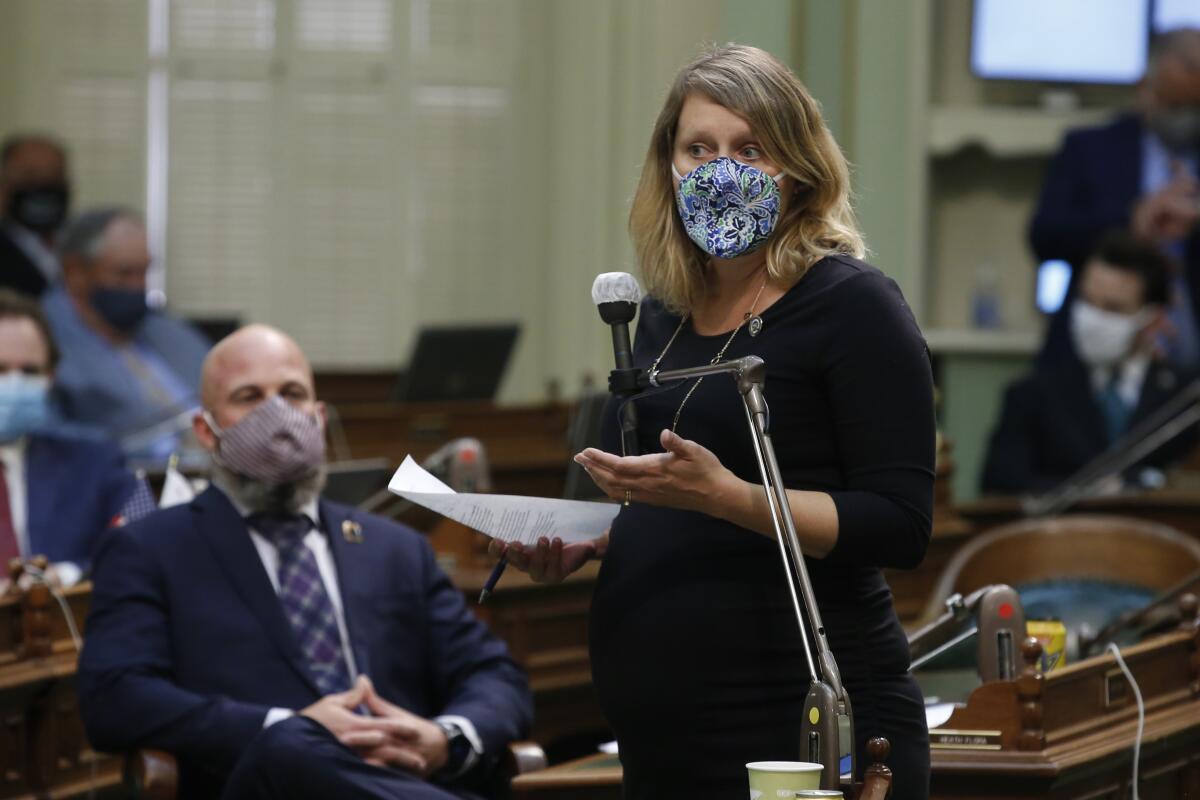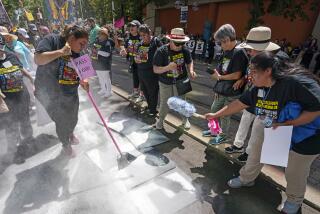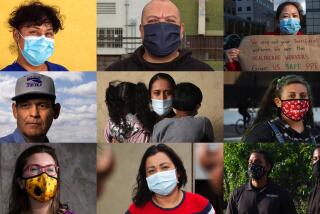One of the most far-reaching vaccine mandate bills in California will not move forward

One of the most far-reaching vaccine bills introduced in the California Legislature this year will not move forward as planned, after the proposal to require all workers to be inoculated against COVID-19 was shelved on the eve of its first hearing.
Citing improved pandemic conditions and opposition from public safety unions, Assemblymember Buffy Wicks (D-Oakland) said she would hold Assembly Bill 1993, which would have required employees and independent contractors, in both the public and private sectors, to be vaccinated against COVID-19 as a condition of employment unless they have an exemption based on a medical condition, disability or religious beliefs.
The move comes as a group of truck drivers protesting COVID-19 mandates around Washington, D.C., has said it plans to head to California to oppose vaccine legislation in the Golden State. AB 1993 had been among the bills listed on the People’s Convoy website that the group planned to protest in California.
AB 1993 was scheduled to be heard Wednesday in the Assembly Committee on Labor and Employment.
“We introduced AB 1993 because of the high volume of workers, employers and public health experts who expressed the need for vaccine requirements yet felt unable to make these changes on their own,” Wicks said in a statement. “We are now in a new and welcome chapter in this pandemic, with the virus receding for the moment. This provides for us the opportunity to work more collaboratively with labor and employers to address concerns raised by the bill.”
In an interview Tuesday, Wicks said the need for the bill could change if COVID-19 rates increase again.
“The door is open should condition warrant,” Wicks said, adding that the decision to pull the bill had nothing to do with the trucker convoy or any planned protests.
“I don’t think my colleagues will be swayed by a trucker gang or whatever they are,” Wicks said. “I think my colleagues would much rather listen to public health officials.”
Assembly Bill 1993 by Assemblywoman Buffy Wicks (D-Oakland) would require employees and independent contractors to be vaccinated against COVID-19.
Wicks said she was disappointed by opposition from public safety unions — including the California Assn. of Highway Patrolmen, California Correctional Peace Officers Assn. and California Professional Firefighters — noting that “it’s my hope that they will ultimately come to the table to make sure all of their workers are vaccinated, and that every job sector in California has the tools necessary to keep their workers safe from COVID-19.”
State workers currently are required to be fully vaccinated against COVID-19 or undergo weekly testing. Vaccination rates among some public safety departments, including the California Highway Patrol and California Department of Forestry and Fire Protection, have remained much lower than those of the general public, according to data from the state human resources department.
In Los Angeles, the city has fended off legal challenges from groups of firefighters and police employees seeking to halt local vaccine requirements.
The California Professional Firefighters union said a blanket vaccine mandate for all employers would undermine “the strength and importance of local bargaining and labor negotiations.”
“We have worked with policy makers on proposals to ensure worker health and safety through paid sick leave and other policy measures,” the union wrote in opposition, adding that it has “worked to educate our members on vaccination options and encouraged them to engage their local government employers on issues associated with COVID-19 safety protocols including vaccination.”
Under AB 1993, the Department of Fair Employment and Housing and California Division of Occupational Safety and Health would have been required to work with the California Department of Public Health on guidance for employers on what would constitute a valid exemption. Businesses would have faced a penalty for failing to comply, although the amount had not been determined. Employers would have had to notify the state that all workers were vaccinated against COVID-19 by Jan. 1, 2023.
An analysis of the bill by the Assembly Committee on Labor and Employment raised several questions, including how the state would ensure that employers were in compliance and how workplaces would be investigated if they were suspected of failing to comply.
Tuesday’s announcement that Wicks would hold off on the bill comes after a previous attempt also stalled. Last year, Wicks planned to introduce a wide-ranging vaccination bill, but it was abandoned in the final weeks of the legislative session. That proposal, which was never formally introduced, called for Californians to show proof of vaccination to enter many indoor businesses and would have required both public- and private-sector workers to be fully vaccinated or regularly tested.
Other bills introduced this year by Democratic lawmakers who formed a vaccine working group remain active in the state Legislature, including Senate Bill 871 by state Sen. Richard Pan (D-Sacramento), which would require the COVID-19 vaccine for all schoolchildren. Senate Bill 866 by Sen. Scott Wiener (D-San Francisco) would allow children 12 and up to be vaccinated without parental consent. And Assembly Bill 1797 by Assemblymember Akilah Weber (D-San Diego) would allow California school officials to more easily check student vaccine records by expanding access to a statewide immunization database.
“We will continue to push for those,” Wicks said. “I think these are all very important and speak to different critical points. At the end of the day, I believe in vaccines and believe they are part of going from pandemic to endemic.”
More to Read
Sign up for Essential California
The most important California stories and recommendations in your inbox every morning.
You may occasionally receive promotional content from the Los Angeles Times.












